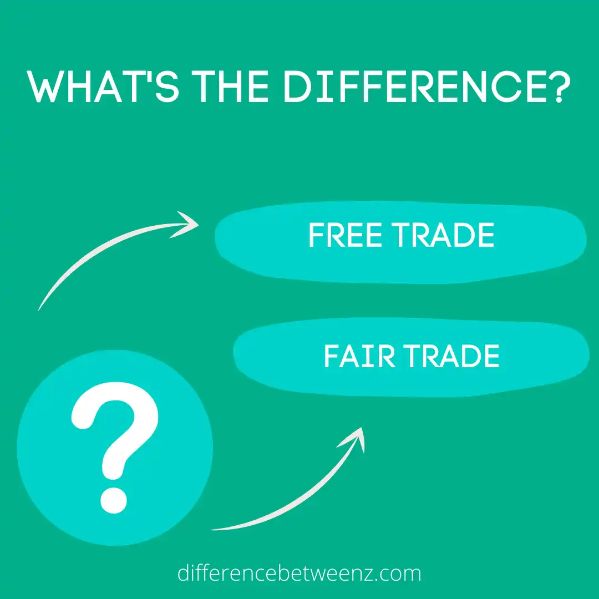At its core, the difference between free trade and fair trade comes down to one word: justice. Free traders believe in a laissez faire approach, where goods and services are traded without government interference. Fair traders argue for a more equitable system that takes into account the needs of workers.
What is Free Trade?
Free trade is a system in which goods and services can be bought and sold freely between countries, without barriers or restrictions. This type of trade allows for greater competition and lowers prices for consumers. Free trade also promotes economic growth and allows countries to specialize in the production of certain goods or services. However, some critics argue that free trade can lead to job losses and lower wages, as well as environmental damage. Overall, free trade is a complex issue with pros and cons that must be carefully considered.
What is Fair Trade?
- Fair Trade is an international movement that aims to create a more just and equitable global trade system. Fair Trade seeks to empower small-scale farmers and workers, who are often exploited by large corporations, by ensuring that they receive fair prices for their products.
- In addition, Fair Trade standards require businesses to adhere to strict environmental and social standards, which help to protect workers’ rights and the environment.
- As a result, Fair Trade provides a more ethical alternative to conventional trade practices. Consumers can support Fair Trade by buying products that carry the Fair Trade certification mark. When we choose Fair Trade, we can help to build a fairer, more just world.
Difference between Free Trade and Fair Trade
When it comes to international trade, there are two main approaches: free trade and fair trade.
- Free trade is based on the principle of laissez-faire or hands-off government intervention. Proponents of free trade argue that it promotes economic growth and efficiency by allowing countries to specialize in the production of goods and services in which they have a comparative advantage.
- In contrast, fair trade is based on the principle of reciprocity or mutual benefit. Proponents of fair trade argue that it protects workers’ rights and environmental standards, and helps to promote economic development in developing countries.
- While both approaches have their merits, there is a growing consensus that fair trade is the more ethical and effective approach to international trade.
- Fair trade helps to ensure that workers in developing countries are paid a living wage and have access to safe working conditions. It also helps to protect the environment by setting standards for sustainable farming and production practices.
- Moreover, fair trade provides a much-needed boost to the economies of developing countries, helping to reduce poverty and improve quality of life.
In short, fair trade is a win-win for all involved, and it should be the approach adopted by all countries when engaging in international trade.
Conclusion
The definition of free trade is the unrestricted purchase and sale of goods and services between countries. Fair trade, on the other hand, is a social movement that aims to help producers in developing countries receive a fair price for their products. There are many benefits to both free trade and fair trade.


